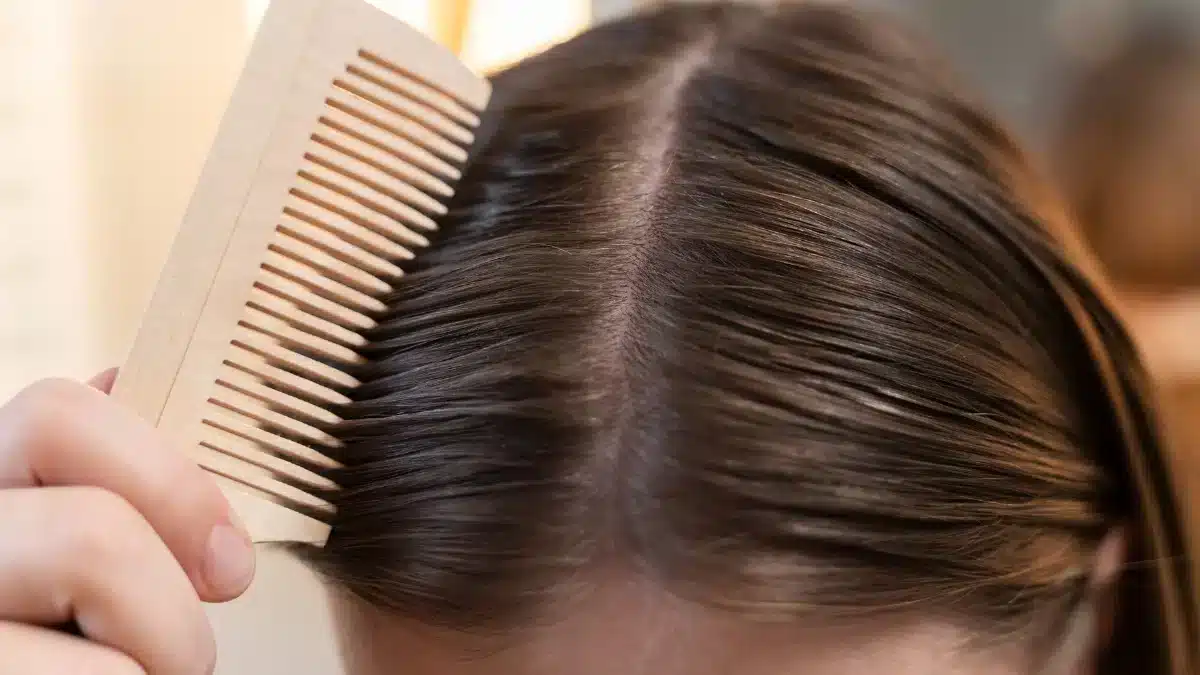Understanding Duration and Recovery: How Long Does Telogen Effluvium Last?
Telogen Effluvium (TE) is a common and reversible hair-shedding condition affecting men and women.
It happens when a considerable number of hair follicles enter the resting phase (telogen) of the hair growth cycle earlier than expected.
As a result, increased hair shedding and thinning on the scalp become noticeable.
TE can be triggered by a number of factors, such as stress, hormonal changes, nutritional deficiencies, and certain medications or medical conditions.
It can be a distressing experience for those affected, leading them to wonder how long this condition will last and when they can expect their hair to return to normal.
In this article, we will know how long does Telogen Effluvium last.
We will also discuss the various aspects of Telogen Effluvium, including its potential triggers, recovery process, and management strategies.
Understanding the hair growth cycle
Before knowing about the duration of Telogen Effluvium, it’s important to understand the hair growth cycle.
The cycle of hair growth consists of three phases which are anagen, catagen, and telogen.
Anagen represents the phase of active growth, catagen is the transitional phase, and telogen is the resting phase.
Hair follicles in the telogen phase eventually shed, making way for new hair growth during the anagen phase.
Duration of Telogen Effluvium
Telogen Effluvium is a non-scarring hair loss condition and its duration can vary from person to person.
It depends on various factors, including the underlying cause, individual health, and lifestyle.
In most cases, Telogen Effluvium is acute and lasts for about 3 to 6 months.
However, in some cases, it can persist for a more extended period.
Chronic Telogen Effluvium
While acute Telogen Effluvium typically lasts for a few months, Chronic Telogen Effluvium is a long-term condition lasting more than six months.
Managing chronic TE requires identifying and addressing underlying triggers and proper medical guidance.
Unlike permanent scarring alopecia, non-scarring hair loss is usually temporary and can be reversed.
Common triggers of Telogen Effluvium

Various factors can trigger Telogen Effluvium, and understanding these triggers are crucial for effective management.
Some common triggers include:
- Physical or emotional stress: High levels of stress, whether due to illness, surgery, or personal reasons, can alter the hair growth cycle, leading to TE
- Hormonal changes: Hormonal fluctuations, like those experienced during pregnancy or childbirth, can contribute to TE
- Nutritional deficiencies: Insufficient intake of essential nutrients like iron, biotin, and zinc can impact hair health
- Medical conditions: Certain medications and underlying medical conditions, such as thyroid disorders
- Stopping birth control: One common concern is how long Telogen Effluvium may last after stopping birth control. Hormonal changes triggered by stopping birth control can cause temporary hair shedding. The duration of this shedding can vary, but it often resolves within a few months as the body readjusts its hormone levels
Recovery process and tips

The good news is that Telogen Effluvium is generally reversible, and most people experience hair regrowth once the underlying trigger is addressed.
Here are some tips to aid the recovery process:
- Balanced diet: Consuming a nutrient-rich diet that includes vitamins B, C, E and minerals like iron and zinc essential for hair health can promote regrowth
- Stress management: Implementing stress-reducing techniques, such as exercise, meditation, and hobbies, can support recovery
- Gentle hair care: Avoid harsh hair treatments and styling practices that can further stress the hair
- Patience: Remember that hair regrowth is a gradual process, and it may take several months to notice significant improvements
- Minoxidil: Minoxidil is a topical medication commonly used to treat Telogen Effluvium. It promotes hair growth and may help in reducing hair shedding, contributing to the recovery process
Conclusion
Telogen Effluvium is a common hair loss condition caused by disruptions in the hair growth cycle.
It leads to increased hair shedding and thinning on the scalp.
Usually lasting 3 to 6 months, it can be longer in some cases, such as Chronic Telogen Effluvium.
Triggers include stress, hormonal changes, nutritional deficiencies, and certain medical conditions.
The condition is reversible, and hair regrowth can be encouraged with a balanced diet, stress management, gentle hair care, and patience.
Frequently Asked Questions
How do you know Telogen Effluvium is ending?
As Telogen Effluvium resolves, you may notice a gradual decrease in hair shedding. New hair growth may become visible at the hairline and scalp. Consulting a dermatologist can provide reassurance and monitoring during the recovery process.
How long will my hair fall out with Telogen Effluvium?
With Telogen Effluvium, hair shedding typically lasts about 3 to 6 months. However, the duration may vary from person to person, and in some cases, it can persist for a more extended period. Hair usually regrows once the underlying trigger is addressed and the shedding stops.
How long does chronic Telogen Effluvium last?
Chronic Telogen Effluvium is a long-term condition lasting more than six months. Unlike acute Telogen Effluvium, which usually resolves within a few months, Chronic TE can persist for an extended period. Identifying and addressing underlying triggers and medical guidance is essential for managing this condition effectively.
What is the fastest way to recover from Telogen Effluvium?
Consult a dermatologist for personalized advice. Address underlying causes like stress, nutritional deficiencies, or hormonal imbalances. Maintain a balanced diet, reduce stress, and ensure adequate rest for optimal recovery from Telogen Effluvium.
WowRx uses only high-quality sources while writing our articles. Please read our content information policy to know more about how we keep our content reliable and trustworthy.






